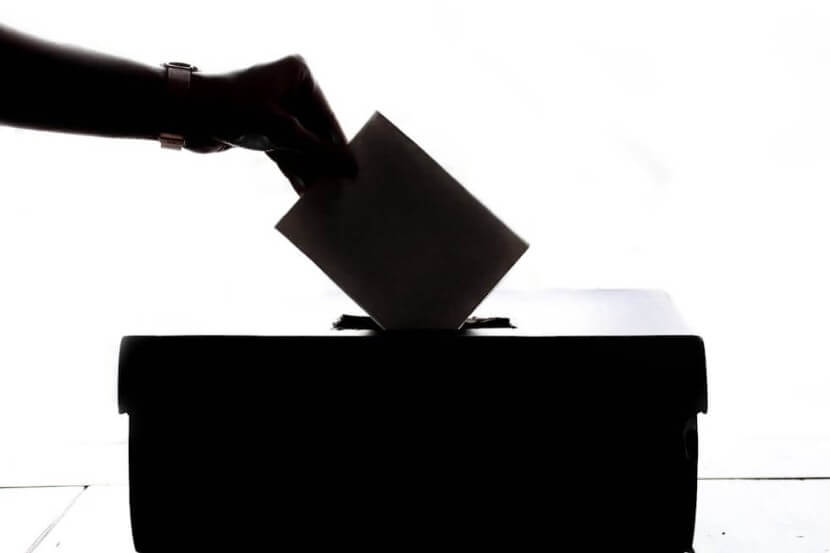Table of Contents
Introduction to German Political Vocabulary
Expanding your German vocabulary to include political terms is important for anyone looking to engage in discussions about current events, read German news, or participate in academic studies. For intermediate learners at the B2 level, understanding political jargon can greatly enhance comprehension and communication skills.
This comprehensive guide introduces you to key German political terms, complete with example sentences and English translations.
German Political Vocabulary List
Below is a list of important German political terms, sorted alphabetically.
| German Word | English Translation |
|---|---|
| der Abgeordnete | the member of parliament |
| die Abstimmung | the vote |
| die Außenpolitik | the foreign policy |
| der Bundestag | the federal parliament |
| die Demokratie | the democracy |
| die Diktatur | the dictatorship |
| die Diplomatie | the diplomacy |
| die EU (Europäische Union) | the European Union |
| die Freiheit | the freedom |
| die Gleichberechtigung | the equality |
| das Gesetz | the law |
| die Innenpolitik | the domestic policy |
| das Kabinett | the cabinet |
| die Kampagne | the campaign |
| der Kanzler / die Kanzlerin | the chancellor (male/female) |
| die Koalition | the coalition |
| der Minister / die Ministerin | the minister (male/female) |
| das Parlament | the parliament |
| die Partei | the party |
| der Präsident / die Präsidentin | the president (male/female) |
| das Referendum | the referendum |
| der Regierungschef / die Regierungschefin | the head of government (male/female) |
| die Reform | the reform |
| die Staatsangehörigkeit | the nationality |
| die Stimme | the vote (individual) |
| die Verfassung | the constitution |
| die Wahl | the election |
| der Wahlkampf | the election campaign |
| die Wahlurne | the ballot box |
| der Wähler / die Wählerin | the voter (male/female) |
| der Widerstand | the resistance |
| die Zensur | the censorship |
Example Sentences Using German Political Vocabulary

To help you understand how these terms are used in context, here are some example sentences along with their English translations.
| German Word | German Example Sentence | English Translation |
|---|---|---|
| der Abgeordnete | Der Abgeordnete sprach im Parlament über das neue Gesetz. | The member of parliament spoke about the new law. |
| die Abstimmung | Die Abstimmung findet nächste Woche statt. | The vote will take place next week. |
| die Außenpolitik | Die Außenpolitik des Landes hat sich verändert. | The country’s foreign policy has changed. |
| der Bundestag | Der Bundestag debattiert über den Haushalt. | The federal parliament is debating the budget. |
| die Demokratie | Die Demokratie ist ein wichtiges Gut. | Democracy is an important asset. |
| die Diktatur | In einer Diktatur gibt es keine freien Wahlen. | In a dictatorship, there are no free elections. |
| die Diplomatie | Diplomatie ist entscheidend für internationale Beziehungen. | Diplomacy is crucial for international relations. |
| die EU (Europäische Union) | Deutschland ist Mitglied der EU. | Germany is a member of the EU. |
| die Freiheit | Die Freiheit der Presse ist wichtig. | Freedom of the press is important. |
| die Gleichberechtigung | Gleichberechtigung ist ein Ziel der Regierung. | Equality is a goal of the government. |
| das Gesetz | Das neue Gesetz tritt nächstes Jahr in Kraft. | The new law comes into effect next year. |
| die Innenpolitik | Die Innenpolitik konzentriert sich auf soziale Themen. | Domestic policy focuses on social issues. |
| das Kabinett | Das Kabinett berät über die Krise. | The cabinet is discussing the crisis. |
| die Kampagne | Die Kampagne zur Wahl ist in vollem Gange. | The election campaign is in full swing. |
| der Kanzler / die Kanzlerin | Die Kanzlerin hält eine Rede. | The chancellor is giving a speech. |
| die Koalition | Die Parteien bilden eine Koalition. | The parties are forming a coalition. |
| der Minister / die Ministerin | Der Minister trifft sich mit internationalen Vertretern. | The minister is meeting with international representatives. |
| das Parlament | Das Parlament stimmt über den Vorschlag ab. | The parliament is voting on the proposal. |
| die Partei | Die Partei hat ein neues Programm vorgestellt. | The party has introduced a new program. |
| der Präsident / die Präsidentin | Der Präsident wurde wiedergewählt. | The president was re-elected. |
| das Referendum | Das Referendum entscheidet über wichtige Fragen. | The referendum decides on important issues. |
| der Regierungschef / die Regierungschefin | Der Regierungschef reist nach Berlin. | The head of government is traveling to Berlin. |
| die Reform | Die Reform soll das Bildungssystem verbessern. | The reform aims to improve the education system. |
| die Staatsangehörigkeit | Er hat die deutsche Staatsangehörigkeit beantragt. | He has applied for German nationality. |
| die Stimme | Jede Stimme zählt bei der Wahl. | Every vote counts in the election. |
| die Verfassung | Die Verfassung garantiert Grundrechte. | The constitution guarantees fundamental rights. |
| die Wahl | Die Wahl findet alle vier Jahre statt. | The election takes place every four years. |
| der Wahlkampf | Der Wahlkampf ist sehr intensiv. | The election campaign is very intense. |
| die Wahlurne | Die Bürger werfen ihre Stimmzettel in die Wahlurne. | The citizens cast their ballots into the ballot box. |
| der Wähler / die Wählerin | Die Wähler entscheiden über die Zukunft des Landes. | The voters decide the country’s future. |
| der Widerstand | Es gibt Widerstand gegen die neuen Maßnahmen. | There is resistance against the new measures. |
| die Zensur | Zensur beeinträchtigt die Meinungsfreiheit. | Censorship impairs freedom of speech. |
Political Vocabulary Free Quiz
Think you’re ready to put your new vocabulary to the test? Take our interactive quiz to assess your understanding and identify areas for further study.
Start our German political vocabulary quiz now!
Conclusion
Mastering political vocabulary in German opens doors to deeper understanding of news, literature, and conversations about current events.
Keep practicing and revisit this guide whenever you need a refresher. Viel Erfolg beim Lernen! (Wishing you success in your learning!)
Frequently Asked Questions (FAQ)
Why should I learn German political vocabulary?
Learning political vocabulary allows you to engage in discussions about current events, understand news articles, and participate in academic or professional settings where politics is discussed.
Are these political terms commonly used in Germany?
Yes, these terms are frequently used in German media, literature, and everyday conversations about politics.
Do you offer an overview of all vocabulary articles?
Of course, you can find here ourGerman vocabulary articles overview.
Where can I find more advanced German learning resources?
Check out our website for more vocabulary articles and quizzes, and short stories. We provide a wide range of resources to support your progress on your journey to mastering the German language.

